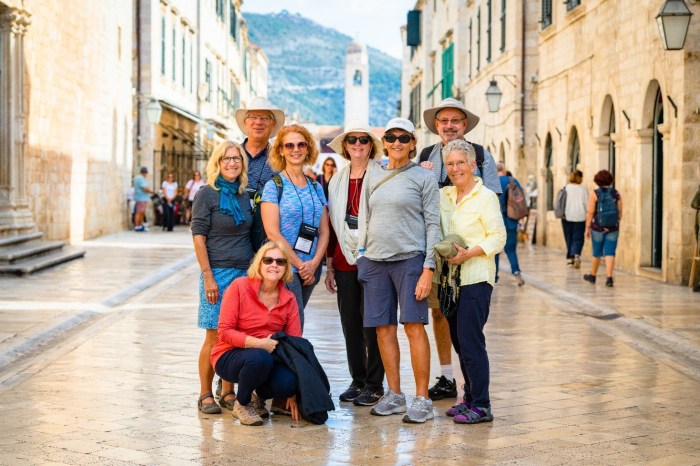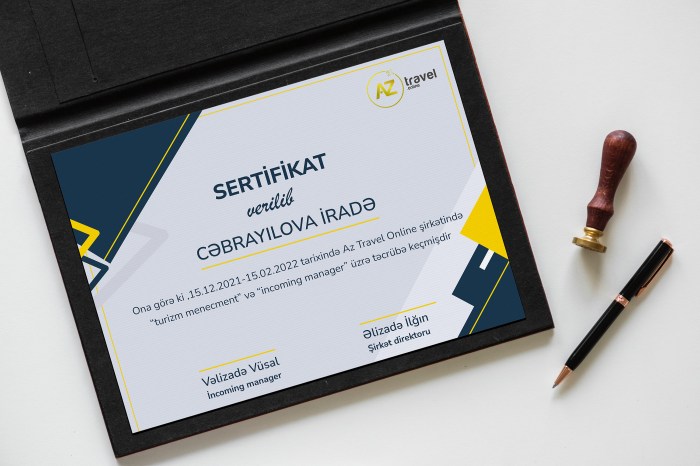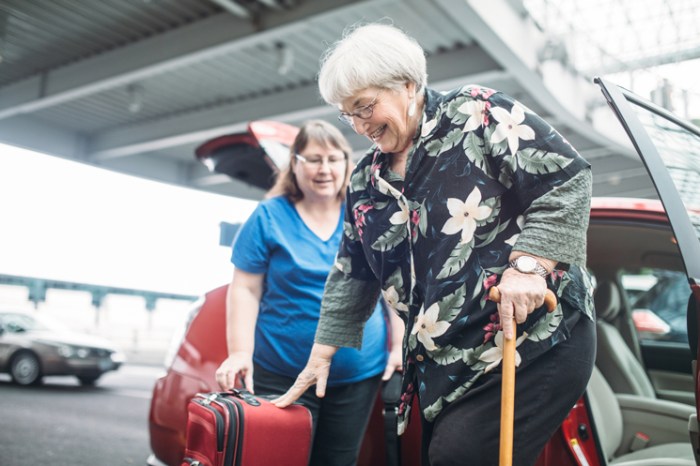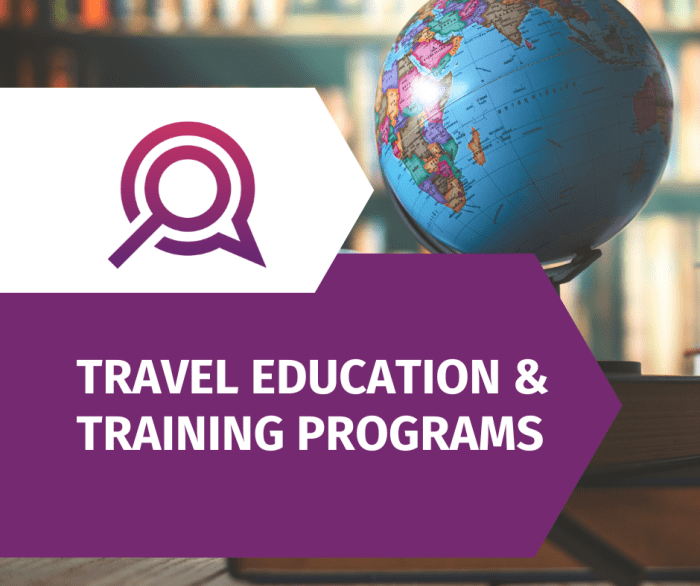Travel Abroad Programs Unveiling Opportunities
Travel abroad programs offer a unique blend of academic enrichment and cultural immersion. These programs go beyond typical study abroad experiences, encompassing various types from educational courses to service-learning projects and cultural exchanges. They provide a chance to explore different cultures, perspectives, and ways of life, enhancing personal growth and developing valuable skills. Moreover, these programs can open doors to career opportunities and future success.
Understanding the structure, benefits, and considerations of travel abroad programs is crucial. This overview delves into the different types of programs, planning and preparation steps, financial aspects, and cultural sensitivity. It also highlights the roles of participants, administrators, and local partners, ensuring a comprehensive understanding of the experience.
Defining Travel Abroad Programs

Travel abroad programs are increasingly popular educational and experiential opportunities that go beyond traditional study abroad experiences. These programs offer a diverse range of experiences, from immersive cultural immersion to hands-on service learning projects, tailored to meet specific academic and personal objectives. They provide students with valuable insights into different cultures, perspectives, and problem-solving skills.
These programs are distinct from simple tourist trips or independent study abroad experiences. They incorporate structured learning components, academic credit opportunities, and often feature experienced faculty or program leaders. Furthermore, they are meticulously designed to support student success in their chosen learning objectives.
Program Types and Characteristics
Travel abroad programs encompass a variety of types, each with unique objectives and structures. Academic programs typically integrate coursework and field research within a specific discipline. Cultural immersion programs prioritize firsthand exposure to the host culture through language learning, community engagement, and cultural activities. Service-learning programs combine academic learning with community service projects in the host country.
Participant Roles and Responsibilities
Participants in travel abroad programs play a multifaceted role. They are expected to uphold the program’s ethical guidelines, respect local customs, and contribute to a positive learning environment. This includes fulfilling program requirements, engaging actively in cultural exchange, and respecting the host community. Participants are responsible for understanding and adhering to all program rules and regulations, including visa requirements, safety guidelines, and local laws.
Organization Roles and Responsibilities
Organizing travel abroad programs requires a multifaceted approach. Organizations, or program administrators, must carefully select reputable and trustworthy local partners, ensuring compliance with all regulations. They are responsible for managing logistical details, including travel arrangements, accommodation, and local transportation. Furthermore, ensuring student safety and well-being is paramount, demanding a comprehensive risk management strategy.
Program Duration and Structure
The duration of travel abroad programs varies significantly, ranging from a few weeks to several months. Short-term programs are often focused on specific themes or experiences, while longer programs offer more comprehensive immersion. Programs typically involve a combination of academic activities, cultural experiences, and community engagement. The structure usually includes pre-departure orientation, on-site activities, and post-program reflection. For example, a 4-week cultural immersion program might include language classes, cultural tours, community service projects, and guest speaker sessions. A 10-week academic research program, on the other hand, might involve fieldwork, data collection, and academic presentations.
Examples of Typical Structures
| Program Type | Duration | Structure |
|---|---|---|
| Cultural Immersion | 2-4 weeks | Language classes, cultural tours, and community engagement |
| Academic Research | 8-10 weeks | Fieldwork, data collection, academic presentations, and seminars |
| Service-Learning | 2-6 weeks | Community service projects, workshops, and cultural exchange |
Benefits of Participating
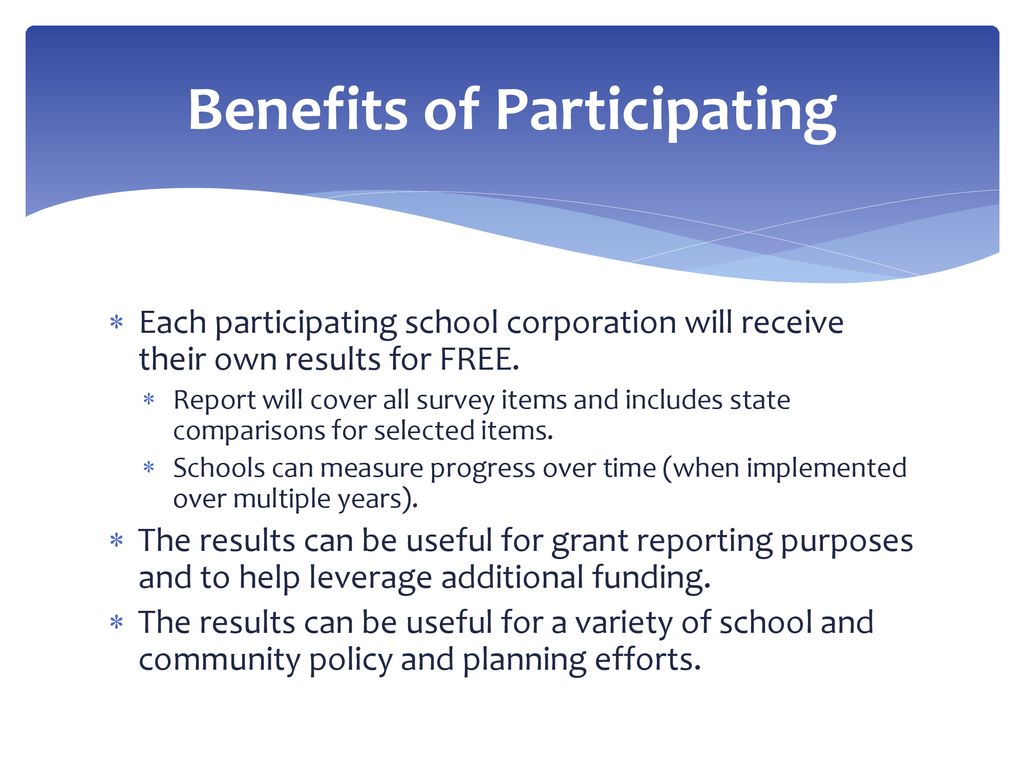
Embarking on a travel abroad program offers a wealth of opportunities for personal and professional growth. These experiences extend beyond the typical classroom, providing invaluable insights into diverse cultures, perspectives, and ways of life. The benefits are multifaceted, impacting academic, personal, and professional spheres.
Participating in travel abroad programs fosters a deeper understanding of the world and cultivates essential skills applicable to various aspects of life. The immersive nature of these programs allows participants to transcend their comfort zones, developing adaptability, resilience, and a global mindset.
Academic Benefits
Travel abroad programs enrich the academic experience by providing a tangible context for theoretical concepts. Students can directly apply classroom knowledge in real-world settings, enhancing their comprehension and critical thinking skills. Exposure to different educational systems and pedagogical approaches allows for comparative analysis and a broader perspective on learning methodologies. Experiential learning through fieldwork and interactions with local communities provides an invaluable opportunity to connect theory with practice.
Personal Growth
Travel abroad programs provide unparalleled opportunities for personal growth and development. Exposure to diverse cultures and perspectives fosters empathy, tolerance, and a broader understanding of human experience. The challenges and uncertainties inherent in unfamiliar environments cultivate resilience, adaptability, and problem-solving skills. These programs facilitate personal introspection and self-discovery, empowering individuals to embrace new ideas and perspectives. Living in a different cultural context allows participants to reflect on their values and beliefs, leading to a more profound sense of self-awareness.
Professional Development
Travel abroad programs significantly enhance professional development by providing opportunities for networking, skill enhancement, and cultural awareness. Developing intercultural communication skills is paramount in today’s globalized world. Interacting with people from diverse backgrounds hones communication abilities and fosters a deeper understanding of different communication styles. Travel abroad experiences are highly valued by employers, as they demonstrate adaptability, resilience, and a global perspective. For example, graduates from these programs often report securing internships or employment opportunities more readily. Employers recognize the value of experience gained from living and working in a different cultural context. The ability to adapt to new situations and work effectively in diverse teams is a highly sought-after skill in the professional world.
Enhanced Skills
Participating in travel abroad programs fosters a range of essential skills that are highly valued in the modern world.
- Critical Thinking: Exposure to different cultures and ways of life challenges pre-conceived notions and encourages critical evaluation of information. Analyzing various perspectives and drawing conclusions based on evidence enhances critical thinking skills, a crucial aspect of problem-solving and decision-making in all aspects of life. For example, analyzing the role of different government structures in different countries or evaluating the efficacy of various social programs can be an insightful exercise in critical thinking.
- Intercultural Communication: Effective communication transcends language barriers. Navigating social interactions in different cultures hones communication skills, enabling individuals to communicate effectively with people from diverse backgrounds. This is crucial for navigating the complexities of the modern global workplace.
- Problem-Solving: Unfamiliar environments and situations often present unforeseen challenges. Learning to adapt and find creative solutions in unfamiliar circumstances fosters problem-solving skills that are valuable in any profession or personal endeavor. For example, navigating public transportation systems, finding local restaurants, or overcoming language barriers are all opportunities to practice problem-solving.
Types and Categories
Travel abroad programs cater to diverse interests and learning objectives. These programs offer invaluable opportunities for personal growth, cultural understanding, and academic enrichment. Beyond the general benefits of international travel, these programs provide structured experiences tailored to specific goals.
Understanding the different types and categories of programs can help prospective participants choose the program that best aligns with their needs and aspirations. This section details the various types, highlighting their unique characteristics and offering examples of programs within each category.
Categorizing Travel Abroad Programs
Travel abroad programs can be categorized into several distinct types, each emphasizing a specific area of learning and experience. These categories allow for a more focused and effective learning journey.
Academic Programs
Academic programs prioritize coursework and research opportunities. These programs often involve lectures, seminars, and field trips, allowing participants to gain a deeper understanding of a particular subject within a global context.
- These programs frequently offer academic credit towards a degree, enriching the curriculum with international perspectives and practical application of knowledge.
- Many programs are designed to complement existing coursework, offering specialized courses or research projects in a specific field of study, such as biology, engineering, or history.
- Examples of academic programs include semester-abroad programs, where students enroll in courses at a foreign university, or intensive language programs, focusing on mastering a new language in a native-speaking environment.
Cultural Programs
Cultural programs emphasize immersion in a foreign culture. These programs typically include workshops, cultural experiences, and interaction with local communities.
- The primary objective of these programs is to foster cross-cultural understanding and appreciation.
- Participants develop an appreciation for diverse perspectives and ways of life, fostering empathy and tolerance.
- Examples include programs focusing on a specific cultural region, such as Southeast Asia, or programs that combine cultural immersion with language learning.
Volunteer Programs
Volunteer programs focus on giving back to the community while gaining valuable experience. These programs offer participants the chance to make a positive impact in the host country while learning about different cultures and social structures.
- Common activities include assisting local communities with projects in areas like education, environmental conservation, or healthcare.
- Participants often work alongside local organizations, gaining insights into local issues and problem-solving strategies.
- Examples include programs working with orphanages, wildlife conservation centers, or community development initiatives.
Adventure Programs
Adventure programs combine travel with outdoor activities and exploration. These programs typically involve hiking, rock climbing, kayaking, or other outdoor pursuits, while also integrating cultural immersion.
- These programs appeal to individuals seeking a more active and adventurous travel experience, combining physical challenges with cultural exposure.
- These programs often take place in remote or less developed areas, allowing participants to engage with nature and local communities unique
- Examples of adventure programs include trekking expeditions through the Himalayas or kayaking trips through the Amazon rainforest.
Comparison Table
| Category | Focus | Typical Activities | Learning Outcomes |
|---|---|---|---|
| Academic | Coursework and Research | Lectures, seminars, and field trips | Academic credit, knowledge acquisition, and global perspectives |
| Cultural | Immersion in local culture | Workshops, cultural experiences, and community engagement | Understanding different perspectives, building empathy, and cultural awareness |
| Volunteer | Giving back to the community | Community service projects, skill-sharing, and collaboration with local organizations | Developing social responsibility, understanding global issues, and building relationships |
| Adventure | Outdoor activities and exploration | Hiking, rock climbing, kayaking, and wildlife encounters | Developing physical and mental resilience, building teamwork skills, and appreciating natural beauty |
Planning and Preparation

Embarking on a travel abroad program requires meticulous planning and preparation. This phase ensures a smooth and enriching experience, minimizing potential issues and maximizing the benefits derived from the program. Careful consideration of logistical and personal aspects is crucial for a successful journey.
Thorough research and a well-defined approach are essential for a fulfilling travel abroad experience. This includes understanding visa requirements, health precautions, and the necessary documents, alongside creating a realistic budget and selecting a suitable program.
Essential Steps in Program Planning
Planning a travel abroad program involves a series of steps, starting with initial research and culminating in program selection. A methodical approach is key to avoiding last-minute anxieties and ensuring a positive experience. This process should include researching potential programs, contacting institutions, and carefully evaluating program options.
- Initial Research: Begin by identifying your interests and desired learning objectives. Research various programs that align with your goals, considering factors like program duration, location, and curriculum.
- Program Selection: Evaluate different programs based on your criteria, considering factors like academic rigor, cultural immersion opportunities, and program cost. Read reviews from past participants and consider the reputation of the institution offering the program.
- Visa Application: Research visa requirements for your destination country. Start the visa application process well in advance of your departure date, as processing times can vary. Be meticulous in providing all necessary documents and meeting the required criteria.
Visa Requirements and Travel Documents
Visa requirements vary significantly by destination country and individual circumstances. Understanding these requirements is vital for a smooth travel experience. Adequate documentation is equally important for ensuring a seamless entry into and departure from the destination country.
- Visa Application: The process for obtaining a visa often involves gathering specific documents, such as passport copies, financial statements, and letters of acceptance. Understanding the required documentation for your destination is paramount.
- Passport Validity: Ensure your passport’s validity extends beyond your travel dates. Check the specific requirements of your destination country. Allow ample time for potential passport renewal or replacement.
- Travel Insurance: Comprehensive travel insurance is highly recommended. This insurance covers medical emergencies, trip cancellations, and lost luggage. Ensure your policy covers all activities planned.
Health Precautions and Necessary Preparations
Health precautions are crucial for a safe and healthy trip. Research the health conditions prevalent in your destination country and take necessary precautions. Ensure you have the appropriate vaccinations and medication.
- Vaccinations: Consult your doctor about necessary vaccinations for your destination country. Schedule vaccinations well in advance to allow sufficient time for the body to develop immunity.
- Health Information: Research any potential health risks or concerns specific to your destination. Understand any local health regulations and seek advice from your doctor.
- Emergency Contacts: Maintain a list of emergency contacts, including local emergency numbers and your point of contact during the program.
Considerations for Selecting a Program
Selecting a suitable program is crucial for a positive and successful travel abroad experience. Consider the program’s academic value, cultural immersion opportunities, and overall cost.
- Program Curriculum: Evaluate the academic rigor and relevance of the program’s curriculum. Consider if it aligns with your academic goals and interests.
- Cultural Immersion: Assess the opportunities for cultural immersion offered by the program. Consider activities such as language classes, cultural excursions, and interactions with local communities.
- Program Cost: Develop a comprehensive budget that includes tuition, travel, accommodation, and living expenses. Compare costs across different programs to ensure affordability.
Creating a Comprehensive Travel Budget
A detailed travel budget is essential for managing your finances during your program. Consider all potential expenses to avoid unexpected financial strain.
- Program Fees: Determine the total cost of the program, including tuition, materials, and other associated fees.
- Travel Expenses: Include costs for flights, transportation, and accommodation during travel to and from your destination.
- Living Expenses: Estimate daily costs for food, activities, and other living expenses. Consider local currency exchange rates and potential fluctuations.
Costs and Funding

Source: website-files.com
International travel programs can be enriching experiences, but they often come with significant costs. Understanding the financial implications and exploring various funding options is crucial for prospective participants. This section details the typical expenses and available resources to support these journeys.
Financial planning is essential for successful participation in a travel abroad program. Careful budgeting, including the cost of tuition, flights, accommodation, and activities, will ensure a smooth and enjoyable experience. Exploring scholarships, grants, and loans, along with understanding financial aid procedures, will help alleviate financial burdens.
Typical Program Costs
Travel abroad programs involve various expenses. A comprehensive understanding of these costs will assist participants in their financial planning.
- Tuition: This covers the educational component of the program, including course materials, workshops, and any associated fees.
- Flights: Round-trip airfare can be a significant portion of the overall cost, depending on the destination and travel dates. Travelers should consider booking in advance to potentially secure lower fares.
- Accommodation: Housing costs vary greatly depending on the destination, length of stay, and type of accommodation. This can include dorm rooms, shared apartments, or homestays.
- Activities and Expenses: These can encompass local transportation, entrance fees to attractions, meals, and other miscellaneous expenses. Program organizers typically provide a detailed breakdown of these anticipated costs.
Funding Options
A range of funding opportunities is available to help offset the costs associated with travel abroad programs.
- Scholarships: These merit-based or need-based awards can cover various program expenses. They often require applications with essays and transcripts to demonstrate eligibility. Some scholarships are specific to certain fields of study or destinations.
- Grants: Similar to scholarships, grants are financial aid that typically do not require repayment. These can be offered by governmental agencies, non-profit organizations, or educational institutions.
- Loans: Student loans are a potential funding source. They are typically associated with interest rates and require repayment after graduation or a specified period.
Financial Aid Opportunities and Procedures
Financial aid processes vary by program and institution.
- Application Deadlines: It is crucial to be aware of application deadlines for scholarships, grants, and loans. These deadlines are often well in advance of the program’s start date.
- Required Documents: Different funding sources may require specific documents, such as transcripts, letters of recommendation, essays, and financial statements. These documents demonstrate eligibility and provide crucial information.
- Contacting Financial Aid Offices: Students should contact the financial aid office of the program or university for information about specific aid opportunities and the application procedures. Early inquiries will help ensure a timely application process.
Resources for Finding Funding
Numerous resources can assist students in finding funding opportunities for their travel abroad programs.
- University Financial Aid Offices: These offices often have a database of scholarships, grants, and other financial aid options available to students.
- Online Scholarship Databases: Numerous websites provide comprehensive listings of scholarships and grants, categorized by field of study or other criteria. These databases are valuable resources for finding relevant funding.
- Non-profit Organizations: Non-profit organizations frequently offer scholarships or grants that support international travel and education. These organizations often specialize in specific areas, providing tailored assistance.
Cultural Considerations
Embarking on a travel abroad program necessitates a profound understanding of the cultural nuances of the host country. This goes beyond simply visiting tourist attractions; it involves interacting respectfully with the local community, understanding their customs, and appreciating their unique perspectives. Effective intercultural communication is crucial for a positive and enriching experience for all participants.
Navigating unfamiliar cultural contexts requires preparation and a willingness to adapt. By understanding potential differences and practicing appropriate etiquette, participants can foster positive relationships and avoid misunderstandings. This preparation is essential for a successful and respectful experience abroad.
Importance of Cultural Sensitivity and Awareness
Cultural sensitivity and awareness are fundamental to a positive and productive travel abroad experience. Participants who demonstrate a genuine interest in and respect for the host culture are more likely to build rapport with locals, gain valuable insights, and create lasting memories. This approach fosters a sense of belonging and mutual understanding.
Preparing for Potential Cultural Differences and Misunderstandings
Thorough preparation is key to navigating potential cultural differences. Researching the local customs, traditions, and etiquette beforehand can help participants anticipate and address potential misunderstandings. Understanding the cultural context of nonverbal communication, such as body language and personal space, is equally important. Reading books, watching documentaries, or talking to individuals familiar with the culture can offer valuable insights.
Appropriate Etiquette and Communication Strategies in Diverse Cultural Settings
Appropriate etiquette and communication strategies are crucial for respectful interactions. Understanding the cultural norms regarding greetings, personal space, and social interactions is essential. For example, some cultures may prefer direct eye contact, while others may consider it intrusive. Similarly, the level of formality in communication can vary greatly across cultures. Observing local customs and adapting communication styles accordingly demonstrates respect. Actively listening and seeking clarification when needed are also vital components of effective intercultural communication.
Respect for Local Customs and Traditions
Demonstrating respect for local customs and traditions is paramount. This involves adhering to local dress codes, avoiding potentially offensive topics, and being mindful of religious and cultural sensitivities. Respecting local traditions and beliefs, including dietary restrictions, religious holidays, and social protocols, is crucial for a harmonious experience. For instance, in some cultures, removing one’s shoes before entering a home is a common practice, and respecting this custom shows consideration and respect. Similarly, avoiding loud or disruptive behavior in public places is essential for demonstrating respect for local norms.
Program Evaluation and Assessment
Evaluating the effectiveness of travel abroad programs is crucial for continuous improvement and ensuring the best possible experience for participants. Thorough assessments identify areas where programs excel and pinpoint areas needing adjustments, ultimately maximizing the educational and personal benefits for students. This process ensures that programs remain relevant and impactful in the ever-evolving landscape of international education.
Framework for Evaluating Program Effectiveness
A comprehensive framework for evaluating travel abroad programs should encompass various dimensions. This framework should assess the program’s alignment with its stated learning objectives, the quality of the program design, and the overall impact on participants. Factors such as cultural sensitivity, logistical efficiency, and safety protocols should be rigorously examined. Furthermore, the framework must also account for the program’s financial sustainability and its long-term impact on the host community.
Metrics and Measures for Impact Assessment
Various metrics and measures can be employed to assess the impact of travel abroad programs. Quantitative data, such as participant numbers, program completion rates, and feedback scores, offer valuable insights. Qualitative data, such as participant testimonials, reflections, and observations, provide rich contextual understanding. Analyzing changes in participant attitudes, knowledge, and skills pre- and post-program provides a deeper understanding of the program’s effectiveness. For example, pre-program surveys can measure participants’ cultural awareness levels, while post-program surveys can gauge their newfound understanding.
Participant Feedback and Experience Collection
Collecting and analyzing participant feedback and experiences is paramount for understanding the program’s strengths and weaknesses. This process involves multiple methods, including pre- and post-program surveys, focus groups, interviews, and online forums. Collecting feedback throughout the program, not just at the end, can offer invaluable insights into participant experiences and identify potential issues early. For example, daily reflection journals can be used to capture participants’ personal experiences, while online discussion forums can facilitate peer-to-peer interactions and collaborative learning. These methods provide a holistic view of the participant experience, identifying aspects that resonate with participants and those that could be improved.
Program Improvement Strategies Based on Evaluation Results, Travel abroad programs
Evaluation results serve as a roadmap for program improvement. Identifying areas needing attention is essential for refining the program’s design, content, and delivery. For instance, if participant feedback highlights logistical challenges, the program can adjust its travel arrangements, accommodation, or transportation strategies. If cultural sensitivity issues are raised, the program can incorporate more robust cultural awareness training for participants. By consistently analyzing evaluation data and adapting the program accordingly, institutions can ensure that travel abroad programs remain relevant and engaging for students. This iterative approach ensures that programs continuously evolve and remain responsive to participant needs.
Program Administration
Effective administration is crucial for the success of any travel abroad program. It ensures smooth operations, addresses participant needs proactively, and fosters a positive experience for all involved. Proper planning and execution of administrative tasks minimize potential disruptions and maximize the educational and cultural benefits of the program.
Program administrators play a vital role in coordinating various aspects of the program, from logistical support to communication and safety protocols. Their responsibilities extend to managing participant expectations, fostering a supportive environment, and ensuring the overall well-being of participants throughout the program duration.
Responsibilities of Program Administrators
Program administrators coordinate a multitude of tasks to ensure a seamless program experience. Their duties include maintaining detailed records, managing budgets, and facilitating communication between program staff, participants, and host organizations.
- Logistical Support: This involves arranging transportation, accommodation, and necessary permits. For example, securing visas, arranging airport transfers, and booking suitable hotels are crucial elements of logistical support. This proactive approach minimizes stress and ensures a smooth travel experience for participants.
- Communication Management: Effective communication is essential for addressing participant concerns and queries promptly. This includes providing regular updates, answering questions, and maintaining a clear communication channel between program staff, participants, and host organizations. For instance, a dedicated email list or a secure online forum can facilitate this communication.
- Participant Needs Management: Administrators are responsible for addressing participant needs and concerns. This may involve resolving issues related to accommodation, transportation, or cultural adjustments. A proactive approach to identifying and resolving potential problems before they escalate is key.
Managing Participant Needs and Expectations
Clearly defined expectations and proactive communication are vital for managing participant needs and expectations. Providing pre-departure information, including program guidelines and cultural insights, is essential for participant preparedness. This helps in fostering a supportive environment where participants feel informed and empowered.
- Pre-Departure Orientation: Providing detailed information about the program, local customs, and safety protocols helps participants feel prepared. This can be done through online materials, pre-departure meetings, or a combination of both.
- Ongoing Support: Maintaining open communication channels throughout the program allows administrators to address concerns promptly and effectively. This can involve regular check-ins, online forums, or dedicated support staff.
- Addressing Concerns: Developing a system for addressing participant concerns, whether large or small, is essential. A dedicated point of contact or a clear escalation process helps in resolving issues promptly.
Importance of Safety Protocols and Emergency Procedures
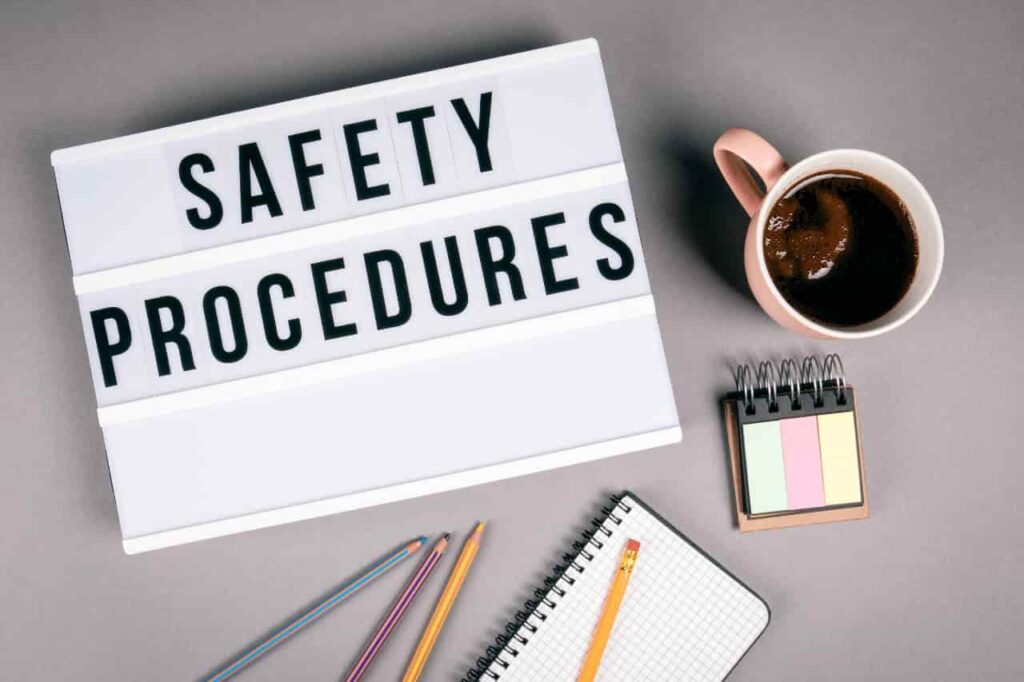
Ensuring participant safety is paramount in any travel abroad program. Comprehensive safety protocols and well-defined emergency procedures are crucial for maintaining a secure environment. This includes identifying potential risks and implementing measures to mitigate them.
- Risk Assessment: Identifying potential safety hazards, such as political instability, health concerns, or natural disasters, is vital. This involves researching the destination and consulting with local experts.
- Emergency Contact Information: Providing participants with emergency contact information for program staff, local authorities, and embassies is essential. This facilitates quick and effective communication in case of an emergency.
- Emergency Procedures: Developing and practicing emergency procedures, including evacuation plans, first aid protocols, and reporting mechanisms, is crucial for a safe program experience.
Role of Local Partners and Host Organizations
Local partners and host organizations play a critical role in the success of travel abroad programs. Their insights and expertise are valuable for ensuring a smooth and enriching experience for participants. Effective collaboration between program administrators and local partners is essential.
- Collaboration: Establishing clear communication and collaboration channels with local partners ensures a coordinated approach to program implementation.
- Cultural Expertise: Local partners possess valuable cultural expertise, which can be leveraged to provide participants with authentic and enriching experiences.
- Ground Support: Local partners provide on-the-ground support, facilitating seamless logistical arrangements and addressing any unforeseen issues.
Choosing a Program
Selecting the ideal travel abroad program requires a methodical approach. Careful consideration of various factors, from program quality to personal preferences, is crucial to ensuring a positive and enriching experience. This process involves evaluating diverse options, considering individual needs, and making informed decisions.
Choosing a travel abroad program is a significant step, and the right program can enhance personal growth and broaden perspectives. A well-structured selection process ensures alignment between the program’s offerings and the participant’s goals and interests.
Evaluating Program Quality
Thorough evaluation of program quality is essential for a successful experience. Accreditation, faculty expertise, and student testimonials are critical indicators of a program’s merit. These elements contribute significantly to the program’s overall value and impact.
- Accreditation: Look for programs accredited by reputable organizations. Accreditation signifies adherence to established standards and demonstrates the program’s commitment to quality. This ensures that the program meets the necessary criteria for academic rigor and responsible practice. Examples include regional or national accrediting bodies specific to the field of study. This process often involves periodic reviews and assessments to maintain accreditation status.
- Faculty Expertise: Investigate the qualifications and experience of the program’s faculty. Faculty expertise in the subject matter ensures that participants receive high-quality instruction and guidance. This includes examining the faculty’s publications, research, and teaching experience. Look for professors who have demonstrated expertise and a passion for their subject matter, particularly in the context of the chosen location and culture.
- Student Testimonials: Reading student testimonials provides valuable insights into the program’s experience. Testimonials offer firsthand accounts of the program’s strengths and weaknesses, giving potential participants a sense of the program’s day-to-day activities and learning environment. Look for testimonials that discuss not just academic aspects but also the cultural immersion and personal growth aspects of the program.
Reputable Organizations
Several reputable organizations offer high-quality travel abroad programs. These organizations typically have extensive experience in international education and cultural exchange.
- University Programs: Many universities offer their own travel abroad programs, often focusing on specific academic disciplines. These programs are frequently structured to integrate learning and cultural immersion. For instance, a history program might focus on historical sites in Europe, while a language program might emphasize cultural immersion in Japan.
- Specialized Travel Agencies: Specialized agencies dedicated to travel abroad programs provide a wide array of options, often with expertise in specific destinations or areas of interest. They may focus on unique programs or have strong connections with local communities.
Program Comparison
Comparing programs based on key aspects facilitates informed decisions. This table provides a framework for evaluating different programs.
| Program Name | Location | Duration | Focus | Accreditation | Faculty Expertise | Student Testimonials |
|---|---|---|---|---|---|---|
| Example Program 1 | Europe | 2 weeks | History and Culture | Accredited by [Accrediting Body] | Faculty with publications in European history and experience in international teaching | Positive testimonials highlighting historical site visits and cultural experiences |
| Example Program 2 | Asia | 1 month | Language and Culture | Accredited by [Accrediting Body] | Faculty with expertise in Asian languages and culture, with experience teaching abroad | Testimonials emphasizing language acquisition and cultural understanding |
| Example Program 3 | South America | 4 weeks | Environmental Science | Accredited by [Accrediting Body] | Faculty with research experience in South American ecosystems, with teaching experience abroad | Testimonials mentioning fieldwork and interaction with local communities |
Epilogue: Travel Abroad Programs
In conclusion, travel abroad programs are powerful tools for personal and professional development. The diverse opportunities, from academic enrichment to cultural immersion, offer participants a unique chance to broaden their horizons and acquire valuable life skills. By carefully considering the various aspects of planning, preparation, and cultural awareness, participants can maximize their learning and growth potential. Ultimately, these programs foster a deeper understanding of the world and oneself.
